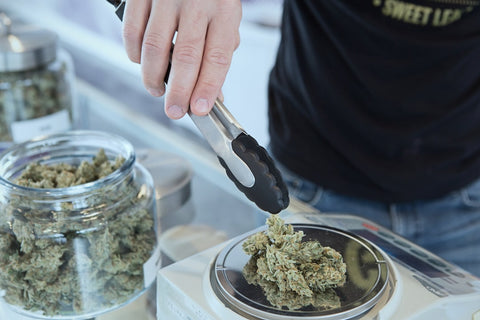With the ongoing evolution of societal perspectives on cannabis, it's essential to delve into the science behind this controversial plant. Cannabis, often associated with stereotypes and misconceptions, is a fascinating subject that warrants a closer look at its properties, uses, and effects. This article aims to explore the science behind cannabis and dismantle common misconceptions surrounding it.
The Composition of Cannabis
Cannabis is composed of various compounds known as cannabinoids, with the most well-known ones being tetrahydrocannabinol (THC) and cannabidiol (CBD). THC is responsible for the psychoactive effects of cannabis, while CBD is non-intoxicating and has gained popularity for its potential health benefits.
The Endocannabinoid System
Our bodies have a complex network known as the endocannabinoid system (ECS), which plays a crucial role in regulating various physiological processes. The ECS interacts with cannabinoids from cannabis, influencing functions such as mood, pain sensation, appetite, and memory.
Medical Applications of Cannabis
Research has shown that cannabis has medical potential in managing conditions like chronic pain, epilepsy, anxiety, and nausea. CBD, in particular, has been studied for its anti-inflammatory and anti-anxiety properties, leading to the development of CBD-based medications.
Debunking Myths About Cannabis
One common myth about cannabis is that it is a gateway drug that leads to the use of harder substances. However, studies have found no direct causal relationship between cannabis use and subsequent use of other drugs. Understanding the context and individual factors is crucial in addressing substance use disorders.
Effects of Cannabis on the Brain
Cannabis can have both short-term and long-term effects on the brain. Short-term effects may include altered perception, mood changes, and impaired memory. Long-term effects, especially with heavy use, can impact cognitive function and memory retention.
Cannabis Legalization and Regulation
The legalization of cannabis for medical and recreational purposes in various jurisdictions has sparked discussions on regulation. Regulations aim to ensure safe access, quality control, and responsible use of cannabis products while addressing public health concerns.
Cannabis and the Environment
The cultivation of cannabis can have environmental implications, primarily related to energy consumption, water usage, and waste management. Sustainable practices, such as outdoor cultivation and eco-friendly packaging, are crucial in minimizing the environmental footprint of the cannabis industry.
Understanding Different Cannabis Strains
Cannabis strains vary in their cannabinoid profile, aroma, and effects. Indica strains are often associated with relaxation and sleep-inducing properties, while sativa strains may provide more uplifting effects. Hybrid strains combine characteristics of both indica and sativa.
Potential Risks of Cannabis Use
While cannabis has therapeutic potential, it is not without risks. Heavy cannabis use, particularly at a young age, may impact brain development and increase the risk of mental health disorders. Responsible and informed consumption is essential to mitigate potential risks.
Exploring Cannabis Research
Ongoing research on cannabis continues to uncover its potential benefits and risks. From investigating the use of cannabinoids in cancer treatment to exploring the impact of cannabis on sleep disorders, research plays a vital role in expanding our understanding of this complex plant.
Embracing a Science-Driven Approach
By embracing a science-driven approach to cannabis, we can move beyond stereotypes and misconceptions. Understanding the scientific principles behind cannabis enables us to appreciate its potential benefits, navigate its complexities, and make informed decisions regarding its use.
Closing Thoughts
As the scientific exploration of cannabis progresses, it becomes evident that this plant holds a wealth of potential beyond the stereotypes that have clouded its perception for decades. By delving into the science behind cannabis, we pave the way for a more informed, nuanced, and inclusive dialogue surrounding its uses and effects.



